Tsukasa's Loneliness…
Tsukasa's loneliness…
I've been thinking about Tsukasa's situation. How he is so tired. Tired of waiting for Amane, tired of being alone, tired of staying awake. Even after his death, he remained, he, just like Amane, he didn't go anywhere.


Death should be eternal rest, shouldn't it? But he never dies, no matter how many times he sacrifices himself, he always stays awake, alone. As a boy, he lived isolated in a house cursed with strange creatures who used him as bait, while he missed his brother.



When he returned, he had his life taken and awakened again in a dark and lonely place… the boundary. We can imagine how much he called out for his brother, even though he killed him, but his voice could never be heard, at best, considering that Amane wasn't such a bad brother.
Perhaps, while he was in that cage, he remembered those dark days…. Where he would have to once again try to free himself alone, without strength, without will, and he had already called him so much, that he was now convinced that It wouldn't make a difference, he wouldn't come for him.


Does he regret coming back? Back to Amane… Because in the end he was alone in the same way as the beginning…
Tsukasa is so tired, and now I can understand him a little. He wants to be destroyed, he wants to leave again, because there is no reason for him to stay. Hanako held him close to him in an almost eternal bond, he forced him to stay by his side even though he abandoned him. He is his yorishiro, and the only way to untie himself is to remove the seal, or destroy him…

But why didn't he just ask Nene from the beginning, when she didn't know he was a yorishiro, to take off that seal?
Because he wants to resolve things directly with Amane before leaving again. He wants Amane to do this, because it wouldn't be fair for him to go through all this and for him to simply leave without Amane even showing that he loves him…
That's just what he wants to hear.
He is no longer disappointed, he is not surprised that Amane acts in a negative way. He accepted that Amane hates him, that Amane doesn't miss him, that Amane doesn't want to be with him, that Amane doesn't listen to his voice, that Amane… won't save him.

He expected Hanako to take Nene from his arms and walk away while he fell to the deepest side of that boundary. It was what he expected of him.

Even though little Tsukasa came back, he just became more sure that Amane hated him… Tsukasa with seal asked him, in his first appearance "do you remember me?"


Hanako abandoned him.
And even so, Tsukasa was so happy to see him again, oh, what a melancholic love… To imagine that he followed his entire relationship with Nene, that he saw that every time she called for him, he heard her …
Why couldn't he hear Tsukasa's voice?
Imagine, you love someone so much that they turn their back on you, while you watch that person give their all for someone else. As if he didn't deserve to receive the same as her, not in a romantic way, but as a younger brother.
The one who spent his days trying to fulfill his brother's wishes while he was sick, the one who… left to save the one he loved, who came back to give his older brother one more chance, a chance to show how he feels in truth…
And in the end, being stabbed in the chest, yes, in the heart. How many stabs has he already received from Amane?
To be locked up and left alone for 10, 20 years… He just wants to leave again, but before that, he still intends to fulfill other people's wishes.

What will be Tsukasa's true wish…. I think only Amane can fulfill it….
More Posts from Doyoulikeslimes and Others
Dazai Osamu (BSD): a case study of a nihilist turned absurdist
I've talked a bit before about the themes of absurdism within BSD, and I think this plays heavily into Dazai and the personal journey he's gone on throughout the series (light novels included). From my perspective, his character development has followed a shift in ideology, from nihilism to absurdism.
First, I'd like to define how these two philosophies are similar yet different. Nihilism is the belief that life is intrinsically meaningless, and that there's no value to seeking meaning. Absurdism also believes that life has no intrinsic meaning, but states that revolting against the absurdity of existence is the way to create meaning.
While I don't think Dazai 100% fits either category fully at any given point in his life as we've seen it thus far, I think in his PM days he leans more towards a nihilist perspective, and following Oda's death he leans more towards an absurdist perspective.
Dazai's reasoning for joining the PM was because he thought that perhaps being around violence and raw emotions would help him understand humanity, giving him a reason to live. This doesn't sound quite like nihilism, but honestly, I think he gains a more nihilist point of view as time progresses and he realizes that he can't find meaning in the PM. I'm not even sure he believed that there was meaning to find in the first place, he was just desperate to prove himself wrong, and then failed, which really cemented this nihilistic mindset for him.
Friedrich Nietzsche, often regarded as the founding father of nihilism, claimed that nihilism "not only the belief that everything deserves to perish; but one actually puts one shoulder to the plough; one destroys.”
If life doesn't have meaning, then it doesn't matter to Dazai if he destroys. So, he fills a corpse with bullets, he horrifically abuses his subordinate, he actively tries to take his own life.
Nihilism is right in line with his suicidal nature. This isn't to say that all nihilists are inherently suicidal, but when one believes that life has no meaning, it's quite easy to come to the conclusion to kill oneself. I think this mindset really lends to his general depression and suicidal ideation, on top of the fact that he feels generally disconnected from humanity. It's so easy for him to consider himself inhuman because he has this nihilistic point of view that nothing matters and everyone else in society seems so dead set on opposing that worldview.
And then you have Oda. He is the closest thing Dazai gets to finding meaning within the PM. Like Chuuya, this is a person that fascinates Dazai, although his reason for fascination is much different. To Dazai, Oda represents what is good in the world, he thinks that he is a good man, and struggles to reconcile how a good person can come out of an existence so seemingly pointless and horrific.
Then, Oda dies.
It's an absurd occurrence, and to Dazai it only proves that life has no meaning. This is exemplified when Dazai speaks to Fyodor about God in Meursault: "[God] is known for is famous for his coincidences and absurdism, I've seen it countless times," and a flashback to Oda's death is shown. A good man died for seemingly no good reason, and to Dazai, this only proves life's meaningless, because to the universe it didn't matter who Oda was, he died, regardless.

(I quoted the dialogue from the BSD anime English dub because I feel it better suited my argument, but you can see that he's essentially saying the same thing).
This event should have only further cemented Dazai as a hardcore nihilist, but fortunately for him, Oda was able to get a word in before he passed. He told Dazai that as long as he believes the sides of good and bad are the same to him, he should be on the side that helps people. Oda suggests fighting against life's inherent absurdity -- and that's absurdism in a nutshell, revolting against a meaningless universe.
Dazai takes his advice, and within a few years, he's working for the ADA, he's on the side that helps people.
In that same conversation with Fyodor, Dazai speaks further about life's meaning:

"Those who scream within the storm of uncertainty and run with flowing blood." That's absurdism, the rebellion against uncertainty, meaninglessness, absurdity.
While I don't think Dazai is a bona-fide absurdist due to his suicidality (absurdism basically sees suicide as giving into meaninglessness), I think he's on his way there because of moments like this.
I don't think he's totally convinced that life is completely and utterly meaningless anymore. He, at the very least, has a respect for those who forge their own meaning through the act of revolt.
"Man stands face to face with the irrational. He feels within him his longing for happiness and for reason. The absurd is born of this confrontation between the human need and the unreasonable silence of the world." - Albert Camus

i just realized today why their ship is called thousand sunny 😭
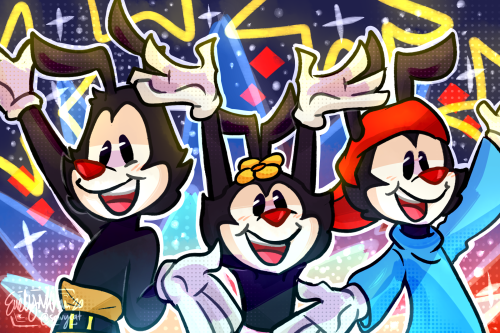
they’re zany to the max!!!
what if we’ve all been in those gacha reaction things but we dont remember it bc the creator wiped our memories
im considering letting you live

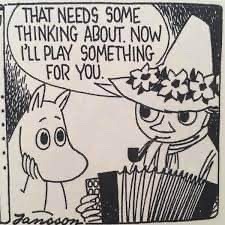
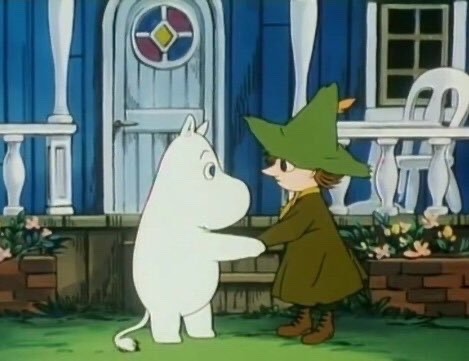
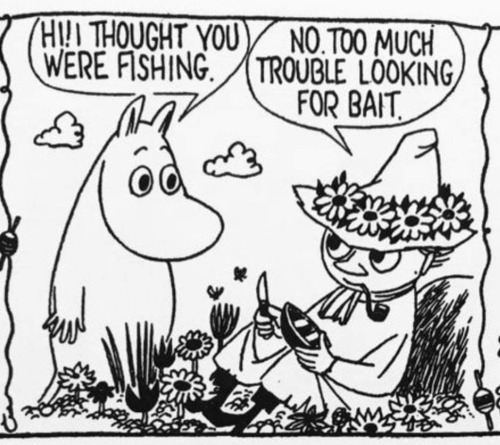
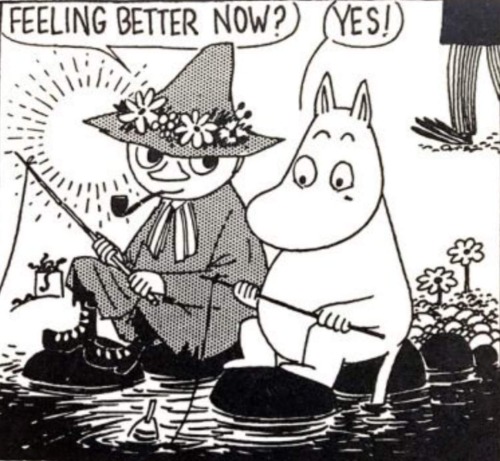



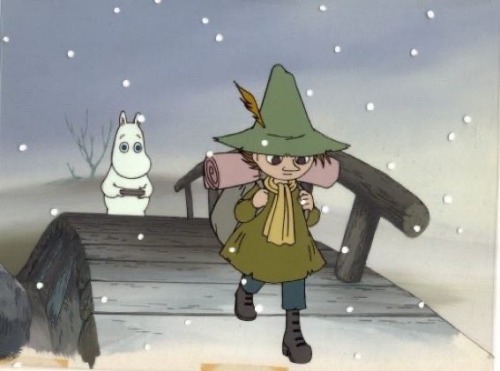

Snufmin in a nutshell.
Sleepover part 7 [finale]
![Sleepover Part 7 [finale]](https://64.media.tumblr.com/ffadf131eadad2d50e32713abb4f5745/04662b6c6357b716-4a/s500x750/1a200e54f1579fb88b6905558daab53befb72c22.jpg)
![Sleepover Part 7 [finale]](https://64.media.tumblr.com/b3f5eda5da4e0fd5188b18cebea8358f/04662b6c6357b716-fb/s500x750/4a7be7a67e05252085f2a406cf719cea7488cd01.jpg)
![Sleepover Part 7 [finale]](https://64.media.tumblr.com/d72bc436161c4973bc8eae76b533908b/04662b6c6357b716-f8/s500x750/e1adaa0db64fd7ec75621073cf6c6692ce674dd1.jpg)
![Sleepover Part 7 [finale]](https://64.media.tumblr.com/104e66b2db145d1c26cd457370049167/04662b6c6357b716-9a/s500x750/e95ee24578fb448354e1822510fa96dc90e95907.jpg)
![Sleepover Part 7 [finale]](https://64.media.tumblr.com/8cf9e52c0b568fd29a4141e0ddbcb567/04662b6c6357b716-3f/s500x750/b487cf8749c90c637aa1885bed9abe410e1af2cc.jpg)
![Sleepover Part 7 [finale]](https://64.media.tumblr.com/8da50eaeb8917d9bbde900ce67c6ab5a/04662b6c6357b716-60/s500x750/11dc09063a446f69ffb02b5cb86592abb7c66985.jpg)

Previous part^
Edit: AHHHHH thank you all for reading and giving this series so much love🥹🩷 I had a blast doing it

























Animaniacs #37 -May 1998- DC Comics
"All My Warners"
writer: Jeff Suess
penciler: Leonardo Batic
inker: Scott McRae
letterer: John Costanza
colorist: Prismacolor
"Li-Hippo-Suction"
writer: Dana Kurtin
penciler: Leonardo Batic
inker: Scott McRae
letterer: John Costanza
colorist: Prismacolor
"Mr. Brain's Neighborhood"
writer: Jeff Seuss
penciller: Walter Carzon
inker: Jim Amash
letterer: John Costanza
colorist: Prismacolor
Hanako's boundary
I saw in some places people saying that they are curious about what Hanako's boundary would be like, but she has already appeared in the manga and anime, see, when Nene is sucked into the mirror she ends up in a bathroom too, with water on the floor and many shadows of "hands" on the walls, like those that frequently appear near Tsukasa in the playroom. The air also feels thick and gloomy. When Mitsuba takes Yashiro out, we see the number 7 above the door, indicating that that was Hanako's boundary.
If you're curious, she appears in chapter 30 and 31 of the manga.



In the anime


In the case of the anime, the door doesn't have a number, I don't know exactly why, but maybe it's to not make it obvious and maintain the mystery.

Can you draw the weebs in Wakkos Wish?

They're on their way to the Wishing Star





gomu gomu of your eye
-
 gumbycoco liked this · 1 month ago
gumbycoco liked this · 1 month ago -
 starzzeekix liked this · 1 month ago
starzzeekix liked this · 1 month ago -
 crystalcabbage liked this · 1 month ago
crystalcabbage liked this · 1 month ago -
 woomychiii liked this · 4 months ago
woomychiii liked this · 4 months ago -
 murr0 reblogged this · 4 months ago
murr0 reblogged this · 4 months ago -
 murr0 liked this · 4 months ago
murr0 liked this · 4 months ago -
 willhan liked this · 4 months ago
willhan liked this · 4 months ago -
 iammes29 liked this · 4 months ago
iammes29 liked this · 4 months ago -
 uhtrchju liked this · 4 months ago
uhtrchju liked this · 4 months ago -
 ashl-yne liked this · 5 months ago
ashl-yne liked this · 5 months ago -
 anax361 liked this · 6 months ago
anax361 liked this · 6 months ago -
 chieftragedywinner liked this · 7 months ago
chieftragedywinner liked this · 7 months ago -
 elinsarinaa liked this · 7 months ago
elinsarinaa liked this · 7 months ago -
 doyoulikeslimes reblogged this · 8 months ago
doyoulikeslimes reblogged this · 8 months ago -
 sanaethestarslover liked this · 8 months ago
sanaethestarslover liked this · 8 months ago -
 nobodysodontquestionit liked this · 9 months ago
nobodysodontquestionit liked this · 9 months ago -
 eryberry594 liked this · 9 months ago
eryberry594 liked this · 9 months ago -
 donut251155 liked this · 9 months ago
donut251155 liked this · 9 months ago -
 8392928rosie liked this · 9 months ago
8392928rosie liked this · 9 months ago -
 bestsopaipillaloverever liked this · 9 months ago
bestsopaipillaloverever liked this · 9 months ago -
 todytoad liked this · 9 months ago
todytoad liked this · 9 months ago -
 haruhikamp4 liked this · 9 months ago
haruhikamp4 liked this · 9 months ago -
 nosoyyo1213 liked this · 9 months ago
nosoyyo1213 liked this · 9 months ago -
 random-rug-rat liked this · 9 months ago
random-rug-rat liked this · 9 months ago -
 kelseycosmo liked this · 9 months ago
kelseycosmo liked this · 9 months ago -
 introvertedartists liked this · 9 months ago
introvertedartists liked this · 9 months ago -
 ayehowya liked this · 9 months ago
ayehowya liked this · 9 months ago -
 thefoodbasket liked this · 9 months ago
thefoodbasket liked this · 9 months ago -
 magimthings reblogged this · 9 months ago
magimthings reblogged this · 9 months ago -
 magimthings liked this · 9 months ago
magimthings liked this · 9 months ago -
 zozo1243 liked this · 10 months ago
zozo1243 liked this · 10 months ago -
 akali-san-blog liked this · 10 months ago
akali-san-blog liked this · 10 months ago -
 jubilevv liked this · 1 year ago
jubilevv liked this · 1 year ago -
 hellooo1234 liked this · 1 year ago
hellooo1234 liked this · 1 year ago -
 furrychaosdaze liked this · 1 year ago
furrychaosdaze liked this · 1 year ago -
 desideratum123 liked this · 1 year ago
desideratum123 liked this · 1 year ago -
 wccutiee liked this · 1 year ago
wccutiee liked this · 1 year ago -
 annieisfine liked this · 1 year ago
annieisfine liked this · 1 year ago -
 noahxeditz liked this · 1 year ago
noahxeditz liked this · 1 year ago -
 hananenekou-stan liked this · 1 year ago
hananenekou-stan liked this · 1 year ago -
 mercuryoh14 reblogged this · 1 year ago
mercuryoh14 reblogged this · 1 year ago -
 mercuryoh14 liked this · 1 year ago
mercuryoh14 liked this · 1 year ago -
 afflicteddystopianwarrior liked this · 1 year ago
afflicteddystopianwarrior liked this · 1 year ago -
 7yorishiroxz liked this · 1 year ago
7yorishiroxz liked this · 1 year ago -
 rafal1200 liked this · 1 year ago
rafal1200 liked this · 1 year ago -
 aquietrabbit liked this · 1 year ago
aquietrabbit liked this · 1 year ago -
 dorayakiboy liked this · 1 year ago
dorayakiboy liked this · 1 year ago -
 yu--rei liked this · 1 year ago
yu--rei liked this · 1 year ago -
 local-boba-addict liked this · 1 year ago
local-boba-addict liked this · 1 year ago -
 sugarcub liked this · 1 year ago
sugarcub liked this · 1 year ago
